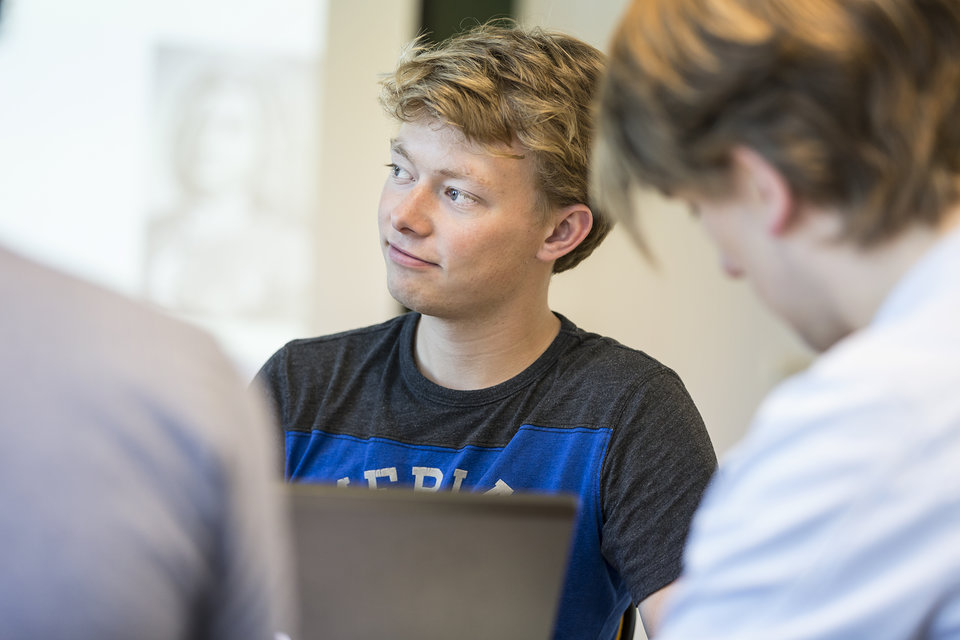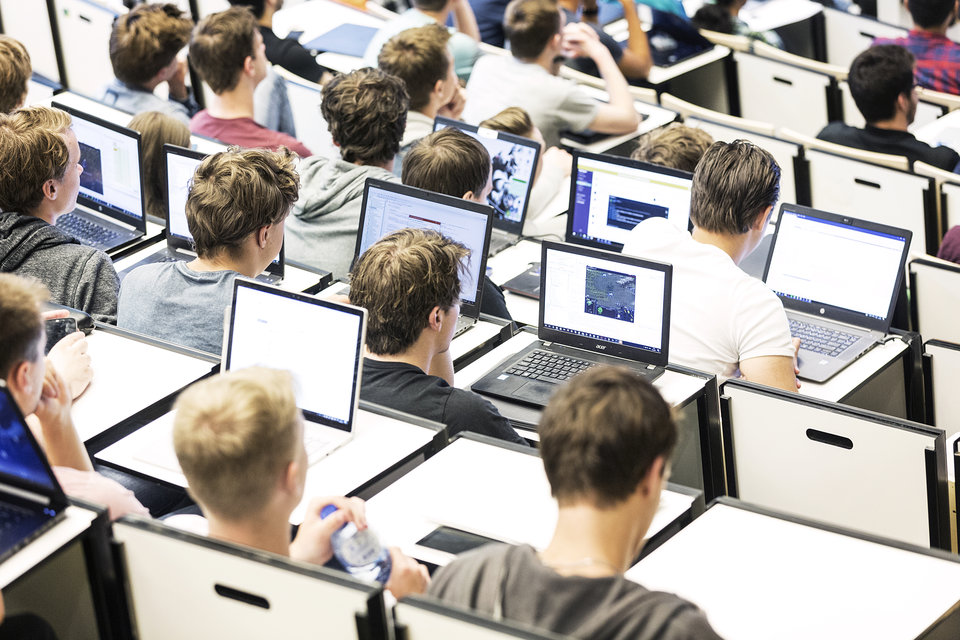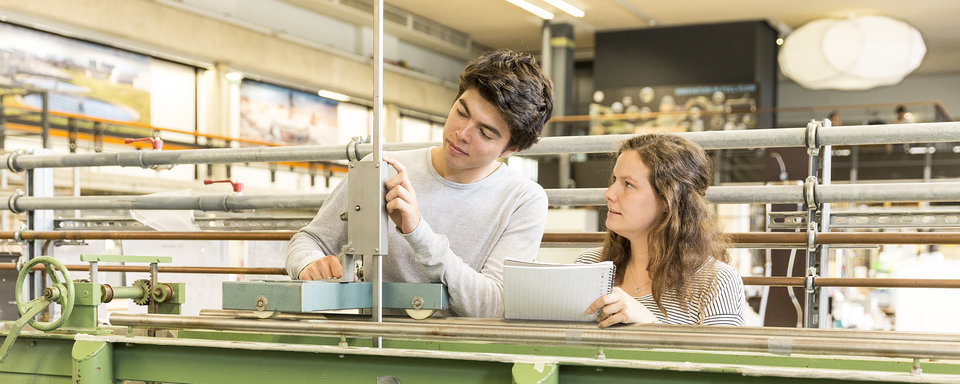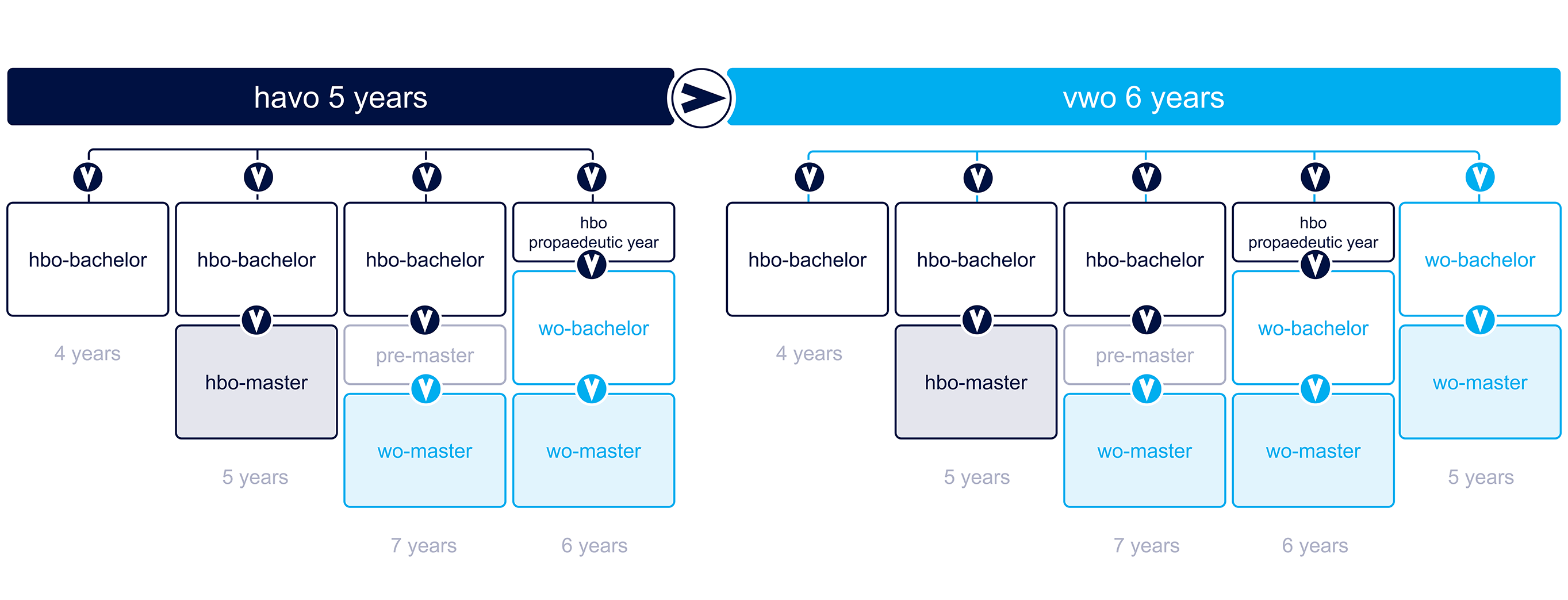What's the difference between HBO and WO?
What type of degree programme should you choose?
It is very important to make a choice that suits you. On this page, we will inform you about the differences between a degree from a university of applied sciences (hbo) and a degree of an academic university (wo).
In the Netherlands, we have two different bachelor's degrees.The Bachelor's degrees from a university of applied sciences (hbo) and an academic university (wo) are equal in value, but there are also differences:
- Hbo degree programmes have a professional orientation. Wo degree programmes have an academic orientation.
- Hbo Bachelor's programmes take four years (240 ECTS). Wo Bachelor's programmes take three years (180 ECTS).
- The minimum admissions requirement for an hbo Bachelor's programme is a diploma at Dutch mbo level 4 (senior secondary vocational education) or Dutch havo (higher general secondary education). For wo Bachelor's programmes, this is a diploma at Dutch vwo level (pre-university secondary education) or an hbo first-year diploma (propaedeutical year).
Hbo Bachelor's degrees do not grant access to a related Master's programme at a Dutch academic university directly. It is sometimes necessary to follow a pre-master's programme at an academic university to upgrade your knowledge and skills to the right level.
The most important differences at a glance
HBO programme
-
The type of education is aimed at (learning to) answer questions.
You learn to invent solutions for actual problems and how these can be realised. -
You are part of a regular class and the contact with the teacher is personal.
You often work together with fellow students on assignments and projects. You are also involved in self-study, but less than at a university. -
Practical internships are always part of your programme. Sometimes as early as in the first year.
In addition to internships, you often work on practical cases, practical simulations and projects.
-
During your programme, you work (co-operate) in practice-oriented research into questions from the professional practice of companies, institutions and governments around a problem. The research is aimed at finding a solution for this.
-
Ther is a more clear professional perspective. After 4 years you can make a start on the job market with a hbo bachelor's degree.
-
You will be appointed to a personal supervisor from your degree programme.
Academic programme
-
The education is aimed at (learning to) ask questions.
You learn to investigate a problem, to look critically at existing theories and to improve and record them. -
The lectures take place in larger, changing groups in big college rooms. In addition to lectures, there are also small-scale tutorials.
You often study alone at home or in the library. You are expected to be able to absorb a lot of (English) teaching material quickly. The level of group work differs per programme. -
Practical internships are often optional. Theory and research skills form the bulk of your studies. Usually you complete a research project for your graduation instead of an internship.
-
Research is an important part of the training. The research focuses on a scientific issue. Research involves causes, explanations and connections.
-
You receive a broad education in a university bachelor's degree. It is less clear in advance where you will eventually work. In the academic master's you choose a specific direction.
-
Usually it's up to you to take the first step for guidance.
Please note: Sometimes the flow options are limited, so make sure you are well informed.
After your university bachelor's you are not yet ready for the labor market and you can choose a master's programme (which takes 1, 2 or 3 years). After your HBO bachelor's degree, you can apply for a job or continue your studies for a master's degree at a university of applied sciences or university. If you want this, you have to follow a 'pre-master'. This includes, for example, academic skills and research skills to prepare you for the university master's degree.



